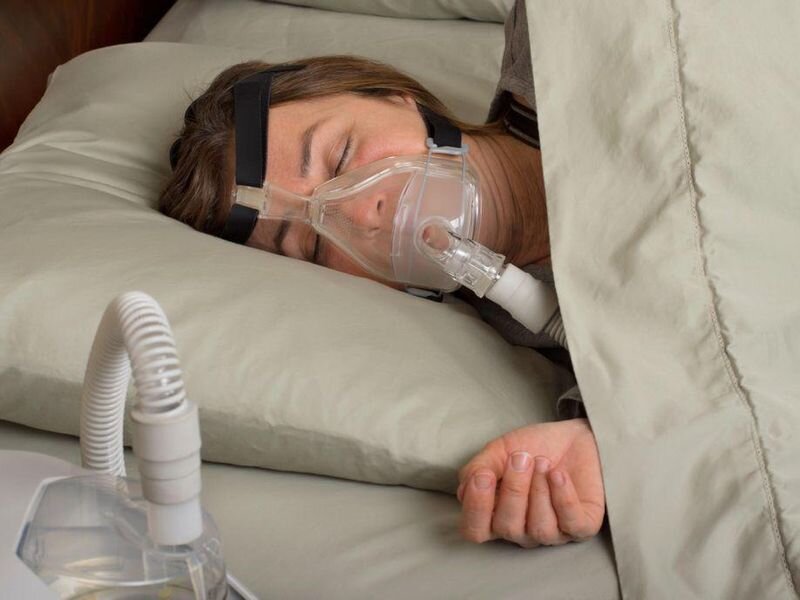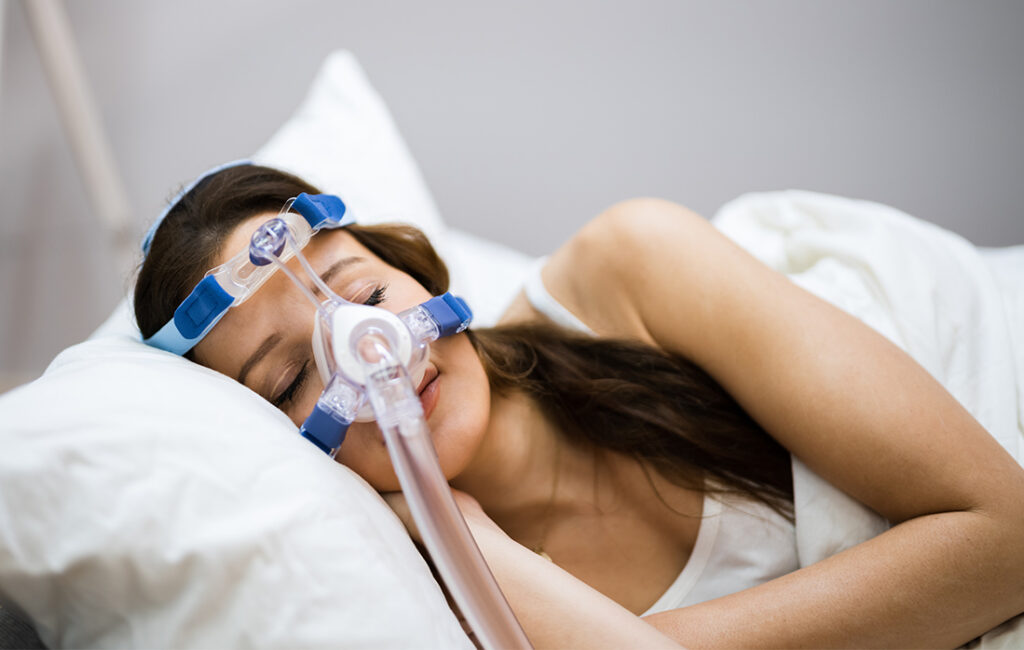In recent years, there has been a growing recognition of the importance of sleep health and its impact on overall well-being. As a result, sleep studies have become instrumental in understanding and addressing sleep disorders. Geelong, a vibrant city in Victoria, Australia, has made significant strides in assessing and promoting sleep health. Let’s take a closer look at the significance of sleep health, the process of a sleep study, the state of sleep health in Geelong, and strategies for improving sleep health.
Understanding the Importance of Sleep Health
Sleep is not just a state of rest; it is a vital physiological process that plays a crucial role in maintaining overall health. Adequate sleep is essential for physical and mental well-being, cognitive function, immune system regulation, and emotional balance. However, sleep deprivation and sleep disorders can have detrimental effects on various aspects of our lives.
When we study Sleep Study Geelong came to know that our bodies undergo essential processes that help repair tissues, synthesize proteins, and release growth hormones. This is why quality sleep is often referred to as “beauty sleep,” as it contributes to healthy skin, hair, and overall physical appearance. Furthermore, during deep sleep stages, the brain clears out toxins that accumulate during waking hours, promoting neurological health and cognitive function.
The Role of Sleep in Overall Health
Adequate sleep promotes healthy brain function and memory consolidation. Moreover, it helps regulate hormones that affect appetite and metabolism, contributing to healthy weight management. Additionally, quality sleep is essential for maintaining a strong immune system, reducing the risk of chronic diseases such as heart disease, diabetes, and obesity.
Furthermore, sleep plays a crucial role in emotional regulation and mental health. Lack of sleep can lead to mood swings, increased stress levels, and a higher likelihood of developing anxiety and depression. On the other hand, sufficient and restful sleep can enhance emotional resilience, improve problem-solving skills, and foster creativity.
Common Sleep Disorders and Their Impact
Several sleep disorders can negatively impact sleep quality, quantity, and continuity. Some common sleep disorders include insomnia, sleep apnea, restless legs syndrome, and narcolepsy. These disorders can cause daytime sleepiness, fatigue, irritability, and decreased productivity. Diagnosing and treating these disorders is crucial for improving overall sleep health.
It is important to address any underlying issues that may be disrupting your sleep, whether they are physical, psychological, or environmental. Creating a relaxing bedtime routine, optimizing your sleep environment, and seeking professional help when needed can significantly improve your sleep quality and overall well-being.

The Process of a Sleep Study
A sleep study, also known as polysomnography, is a crucial diagnostic tool used to measure various physiological parameters during sleep. By conducting a sleep study, healthcare providers can gain valuable insights into a person’s sleep patterns and identify potential sleep disorders that may be affecting their quality of rest. This comprehensive evaluation is typically carried out during an overnight stay at a specialized sleep clinic, where an array of data is meticulously collected. Find more about Sleep Study Cost Australia: Understanding the Expenses Nationwide visit https://resp-o-rator.com/sleep-study-cost-australia-understanding-the-expenses-nationwid/
The process of a sleep study can be broken down into two main stages: preparation and data collection. During the preparation phase, individuals scheduled for a sleep study will receive detailed instructions from healthcare providers to ensure they are well-informed and comfortable with the procedure. This preparatory phase helps alleviate any concerns or uncertainties that individuals may have about the process, allowing them to approach the study with confidence.
What to Expect During a Sleep Study
Upon arrival at the sleep clinic, individuals undergoing a sleep study can expect a series of electrodes to be strategically placed on their scalp, face, chest, and legs. These electrodes play a crucial role in recording essential physiological data such as brain waves, eye movements, muscle activity, heart rate, and oxygen levels throughout the night. Once the electrodes are in place, individuals will be settled into a private room within the clinic, designed to resemble a cozy bedroom environment where they can relax and sleep naturally.
During the night, the collected data provides sleep specialists with a wealth of information to analyze. By examining the intricacies of sleep architecture, breathing patterns, and movements recorded during the study, healthcare professionals can identify any irregularities or potential sleep disorders that may be impacting an individual’s rest. This detailed analysis is instrumental in formulating personalized treatment plans tailored to address specific sleep-related issues and improve overall sleep quality.
Interpreting Sleep Study Results
Following the completion of the sleep study, the collected data is meticulously reviewed and interpreted by experienced sleep specialists. These experts carefully scrutinize the information gathered during the study to identify patterns, anomalies, and potential indicators of sleep disorders. By delving into the nuances of the data, healthcare professionals can make informed diagnoses and recommendations for further treatment or intervention, as needed. The insights gleaned from the sleep study play a pivotal role in guiding healthcare providers towards effective solutions that aim to optimize an individual’s sleep health and overall well-being.

Sleep Health in Geelong: A Closer Look
Geelong, known for its beautiful beaches and thriving community, is also home to a diverse population with varying sleep health needs. Understanding the prevalence of sleep disorders in Geelong is crucial for identifying areas that require intervention and providing appropriate resources for residents.
Geelong’s unique geographical location, nestled between the stunning coastline and picturesque countryside, offers a tranquil environment that should ideally promote restful sleep. However, factors such as urbanization, noise pollution, and lifestyle choices can impact the quality of sleep for many residents in the region. Exploring the intersection between environmental influences and sleep health is essential for developing tailored interventions to improve overall well-being.
Sleep Disorders Prevalence in Geelong
A recent study conducted in Geelong found that approximately 20% of adults experience regular sleep disruptions, with insomnia being the most common sleep disorder. Sleep apnea, restless legs syndrome, and shift work sleep disorder were also prevalent. These statistics highlight the need to address sleep disorders across the region. Learn more about sleep disorders prevalence in Geelong visit at https://pubmed.ncbi.nlm.nih.gov/34825268/
Furthermore, research indicates a correlation between socio-economic factors and sleep health outcomes in Geelong. Individuals facing financial stress or unstable employment may be more susceptible to sleep disorders due to heightened levels of stress and anxiety. Understanding the social determinants of sleep health is crucial for implementing holistic strategies that address the root causes of sleep disturbances in the community.
Available Sleep Health Resources in Geelong
In response to the growing importance of sleep health, Geelong has developed a range of resources and support systems. Sleep clinics equipped with state-of-the-art facilities provide diagnosis and treatment for various sleep disorders. Additionally, educational programs and workshops are available to raise awareness about the importance of sleep and provide practical tips for better sleep hygiene.
Collaborations between local healthcare providers, community organizations, and academic institutions have led to innovative approaches in promoting sleep health in Geelong. By fostering a multidisciplinary approach that integrates medical expertise, behavioral interventions, and community engagement, Geelong is paving the way for comprehensive and sustainable solutions to improve the sleep quality of its residents.
Improving Sleep Health: Tips and Strategies
For individuals looking to improve their sleep health, there are various lifestyle changes and medical interventions that can help optimize sleep quality and quantity.
Quality sleep is essential for overall well-being, impacting cognitive function, mood regulation, and physical health. By prioritizing good sleep habits, individuals can enhance their productivity and quality of life.
Lifestyle Changes for Better Sleep
- Establish a consistent sleep schedule by going to bed and waking up at the same time each day.
- Create a relaxing bedtime routine to signal to your body that it’s time to wind down.
- Ensure your sleep environment is comfortable, quiet, and conducive to sleep.
- Avoid stimulating activities, caffeine, and electronic devices close to bedtime.
Additionally, incorporating regular exercise into your routine can promote better sleep. Physical activity helps regulate your circadian rhythm and can reduce symptoms of insomnia.
Medical Interventions for Sleep Disorders
In cases where sleep disorders persist despite lifestyle changes, medical interventions may be necessary. This can include therapies such as cognitive-behavioral therapy for insomnia (CBT-I), continuous positive airway pressure (CPAP) for sleep apnea, medications, and surgical interventions. Consulting a sleep specialist will help determine the most appropriate treatment option. Learn more about insomnia (CBT-I) click here.
It’s important to address any underlying medical conditions that may be contributing to sleep disturbances. Conditions such as anxiety, depression, and chronic pain can significantly impact sleep quality and may require targeted treatment approaches to improve overall sleep health.
The Future of Sleep Health in Victoria
As awareness about sleep health continues to grow, ongoing research and advancements are shaping the future of sleep medicine. Victoria, including Geelong, is at the forefront of these developments, working towards improving sleep health outcomes for its residents.
Ongoing Research and Developments
Researchers in Victoria are exploring innovative diagnostics and treatment approaches to address sleep disorders more effectively. They are investigating the impact of technology, genetics, and lifestyle factors on sleep health, ultimately aiming to develop personalized and targeted interventions.
For instance, one area of ongoing research is the exploration of wearable technology that can monitor sleep patterns and provide real-time feedback. These devices, such as smartwatches and sleep trackers, utilize advanced sensors to track sleep stages, heart rate, and movement. By analyzing this data, researchers can gain valuable insights into individual sleep patterns and identify potential disruptions or disorders.
In addition to technological advancements, researchers are also delving into the genetic factors that influence sleep health. Through genetic studies, scientists are identifying specific genes that may contribute to sleep disorders or impact an individual’s response to certain treatments. This knowledge can pave the way for personalized medicine, where treatment plans are tailored to an individual’s genetic makeup, leading to more effective and targeted interventions.
The Role of Public Health Initiatives in Sleep Health
Public health initiatives play a vital role in promoting sleep health education, raising awareness, and improving accessibility to sleep clinics and resources. Government bodies and healthcare organizations are working collaboratively to develop comprehensive strategies that address the multifaceted nature of sleep health.
One example of a public health initiative in Victoria is the establishment of sleep education programs in schools and workplaces. These programs aim to educate individuals about the importance of sleep, the impact of sleep disorders, and strategies for maintaining healthy sleep habits. By integrating sleep education into the curriculum and workplace wellness initiatives, Victoria is fostering a culture of prioritizing sleep health from an early age.
Furthermore, public health campaigns are being launched to raise awareness about the signs and symptoms of sleep disorders, encouraging individuals to seek timely medical help. These campaigns utilize various channels, including social media, television, and community events, to reach a wide audience and ensure that sleep health remains a topic of conversation.
By expanding the availability of sleep clinics and resources, Victoria is also working towards improving accessibility to sleep healthcare services. This includes increasing the number of sleep specialists, investing in state-of-the-art sleep laboratories, and implementing telemedicine options for remote areas. These efforts aim to reduce wait times for sleep consultations and provide convenient access to diagnosis and treatment options for all residents.
In conclusion, sleep health is a crucial aspect of overall well-being, and sleep studies are vital tools for assessing and improving sleep health. Geelong, with its focus on sleep health and the availability of resources, is at the forefront of promoting healthy sleep patterns. By understanding the importance of sleep health, engaging in sleep studies, and implementing strategies for better sleep, individuals can enhance their overall quality of life. As ongoing research and public health initiatives continue to shape the future, the importance of sleep health in Victoria will only become more apparent and better supported.
